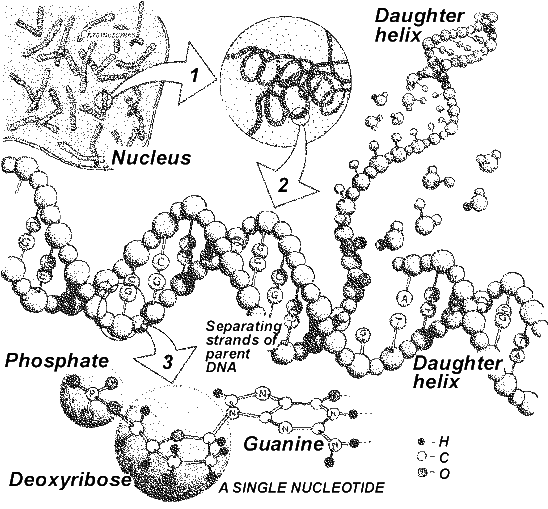In contrast to the public genome project - which is carried out in academic institutions that deposit the DNA sequences they decoded in a public database, to which access is free - Celera keeps the information to itself, and allows pharmaceutical companies and universities to mine the information in the database in exchange for a subscription fee.

In contrast to the public genome project - which is carried out in academic institutions that deposit the DNA sequences they decoded in a public database, to which access is free - Celera keeps the information to itself, and allows pharmaceutical companies and universities to mine the information in the database in exchange for a subscription fee.
Prof. Yoram Gruner, the vice president of the Weizmann Institute, said that the institute's scientists today have an advantage over scientists from other universities, looking at data that is not yet in the public database. As of today, Celera's version of the human genome is more comprehensive than that in the public information base, because it includes both the data produced by the company and the data produced by the scientists of the public project. According to Celera, she has also decoded about 95% of the mouse genome, an animal used as a research model and through which scientists have acquired considerable parts of the knowledge about human biology. The public project, in contrast, only deciphered about 15-20% of the mouse genome.
People from the public project have previously questioned the promises of the company's CEO, Dr. Craig Venter, according to which he would sell subscriptions to universities on terms and prices that public research institutions could afford. So far Celera has sold subscriptions to about five leading universities in the US, and to the Australian government. Subscription fees vary depending on the scope of access to information, the size of the research institution and the number of users. The agreement signed by the parties forbids disclosing how much was paid to Salara, or any other details of it, but Dr. Venter said in the past that subscription fees for universities will be around $20, as opposed to tens of millions of dollars for commercial companies. According to a source familiar with the agreement, the institute must report discoveries based on the company's database to Celera, but it will not have ownership rights to the discoveries. The confidentiality agreement also prohibits the institute from transferring information from the database to researchers outside the institute.
In addition to access to the DNA sequences in the database, Celera provides the institute with advanced tools it has developed for organizing and analyzing the vast amounts of information in the database. Among the important data included in the database are the branches (acronyms for "Single Nucleotide Polymorphism"). The branches are genetic variations - differences of one DNA unit - scattered throughout the genome. Some of them may contribute to the development of diseases or to the sensitivity of humans to drugs. Scientists believe that their research will make it possible to reveal the complicated nature of complex diseases such as schizophrenia and heart disease, as well as to tailor drugs personally to each patient. The number of branches is estimated at three million. Celera's database - which consists of the genomes of five different people - apparently contains almost all the branches, while only about 400 are in the public domain.
The institute thinks that the agreement, which will be valid for three years, is a worthwhile deal, despite the statements of the managers of the public genome project who claim that they will finish deciphering the entire human genome soon - and allow access to the information free of charge. "We took a certain risk here and I think it's a calculated risk," said Prof. Doron Lantz, head of the genome center at the institute. "We assume that what we get for the money will always be more than what is in the public domain - because that is in Celera's interest."
The Chief Scientist of the Ministry of Science, Prof. Hagit Maser-Yeron said yesterday that the Ministry will look into the possibility of purchasing a government subscription to the Celera database, which will also allow access to the other academic bodies in Israel.
{Appeared in Haaretz newspaper, 24/10/2000}
